[Newsbits] 8-18.11.2024: Mechanical Qubit, Operation Dronagiri & more
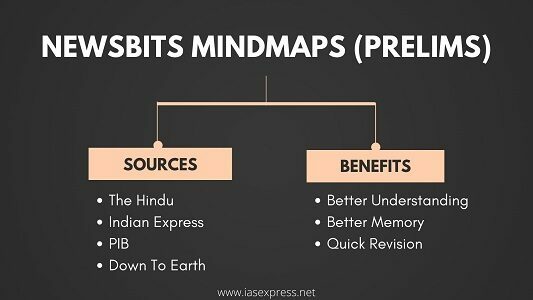
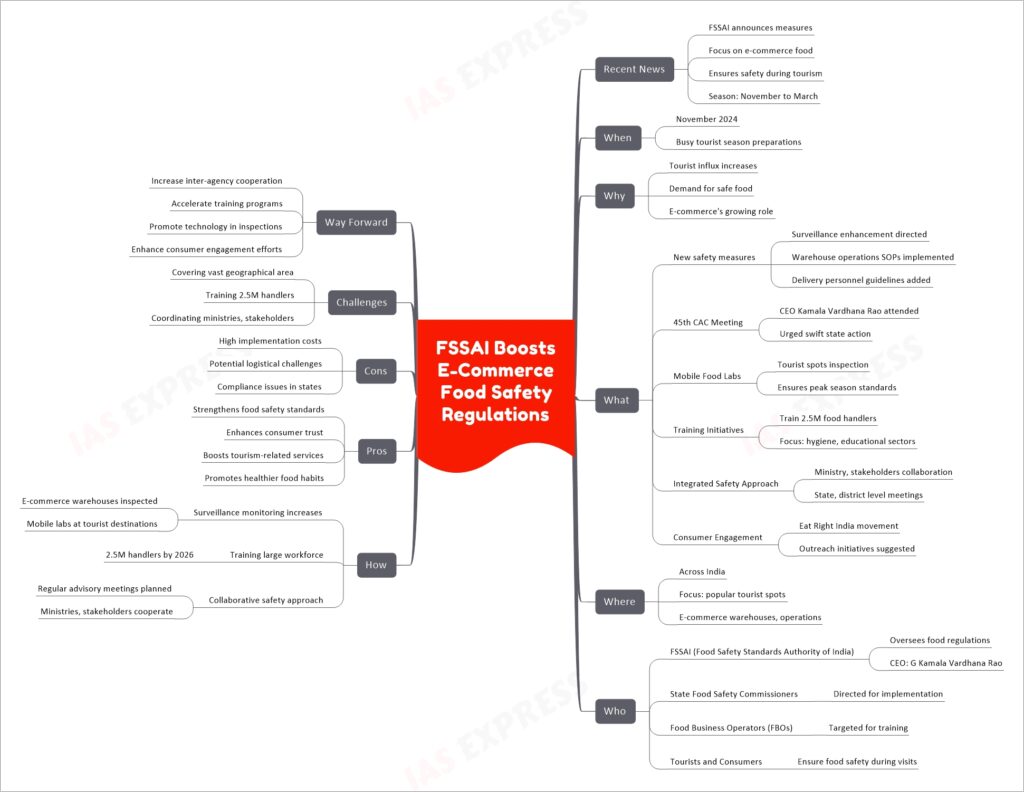
FSSAI has introduced new food safety measures for e-commerce in preparation for the tourist season from November to March. Initiatives include enhanced warehouse surveillance, mobile food labs, and training for 2.5 million food handlers by 2026. Collaborative efforts with state and district authorities aim to ensure rigorous compliance, while consumer engagement under the Eat Right India movement raises awareness. These measures address food safety challenges in tourism hotspots, emphasizing stricter regulation, outreach, and healthier practices. Despite potential logistical and financial hurdles, this proactive strategy seeks to safeguard public health and support India’s growing tourism sector.
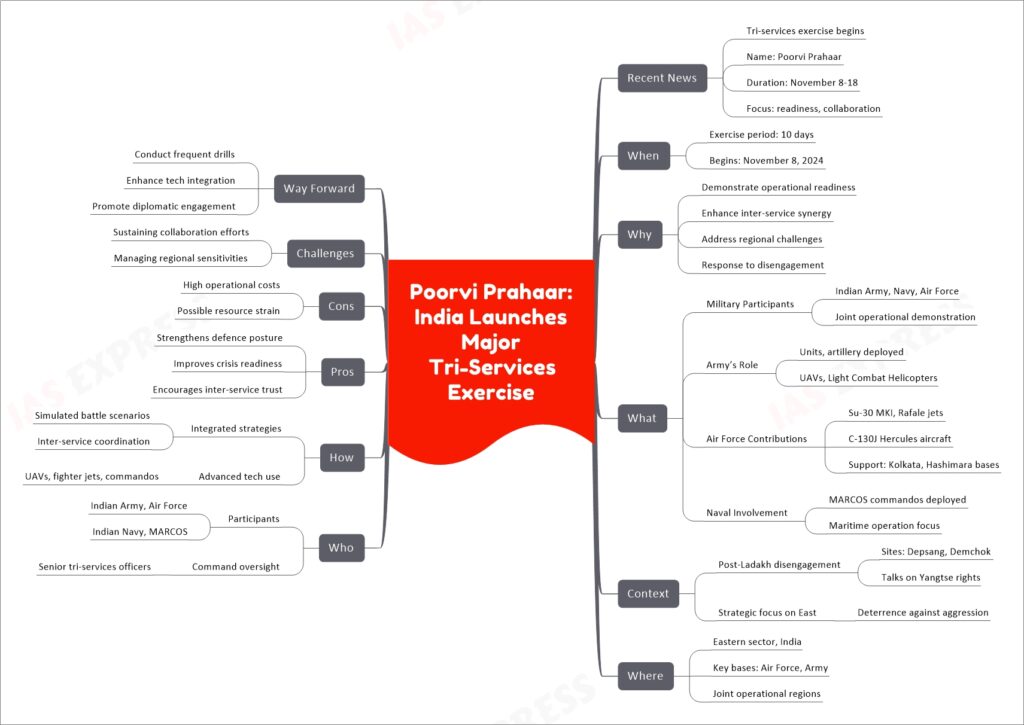
India launched the tri-services exercise ‘Poorvi Prahaar’ on November 8, 2024, to demonstrate military readiness and foster inter-service collaboration. Involving the Army, Navy, and Air Force, the 10-day exercise features advanced technologies like UAVs, Rafale jets, and MARCOS commandos. Staged in the eastern sector, it responds to recent disengagement with China in Ladakh and ongoing negotiations over patrolling rights in Yangtse. The exercise emphasizes operational preparedness, crisis management, and regional deterrence. It holds strategic significance amid regional tensions and aims to bolster India’s defence posture while addressing challenges like costs and inter-service coordination.
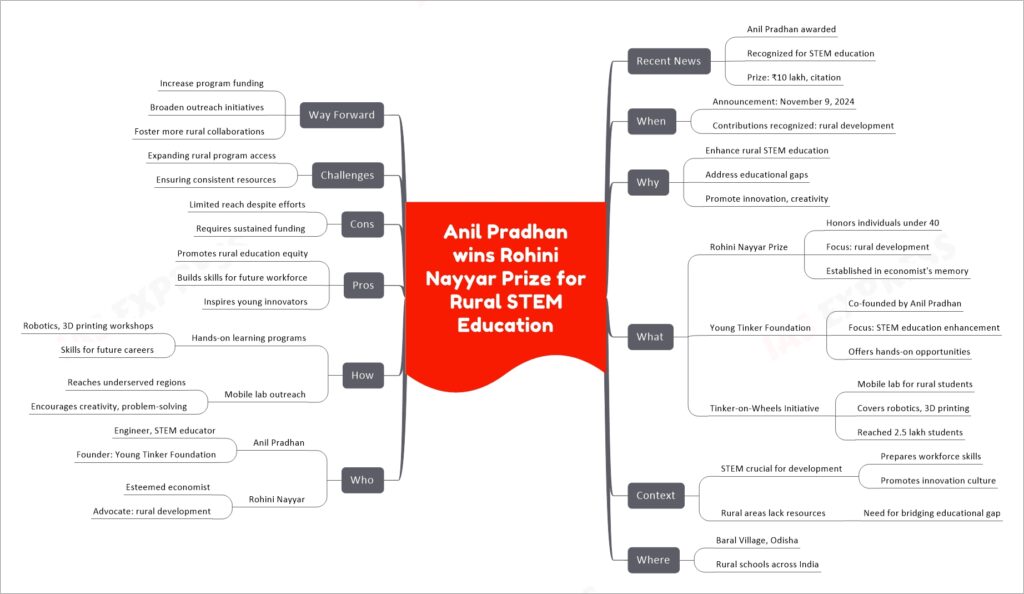
Anil Pradhan, a 28-year-old engineer from Odisha, received the Rohini Nayyar Prize for his exceptional contributions to rural STEM education. Co-founder of the Young Tinker Foundation, Pradhan introduced ‘Tinker-on-Wheels,’ a mobile lab offering hands-on learning in robotics and 3D printing, impacting over 2.5 lakh rural students. The ₹10 lakh prize commemorates economist Rohini Nayyar’s legacy in rural development. STEM education bridges educational gaps, fosters innovation, and prepares students for future careers. While challenges like funding and accessibility persist, Pradhan’s work exemplifies the transformative potential of targeted rural education initiatives.
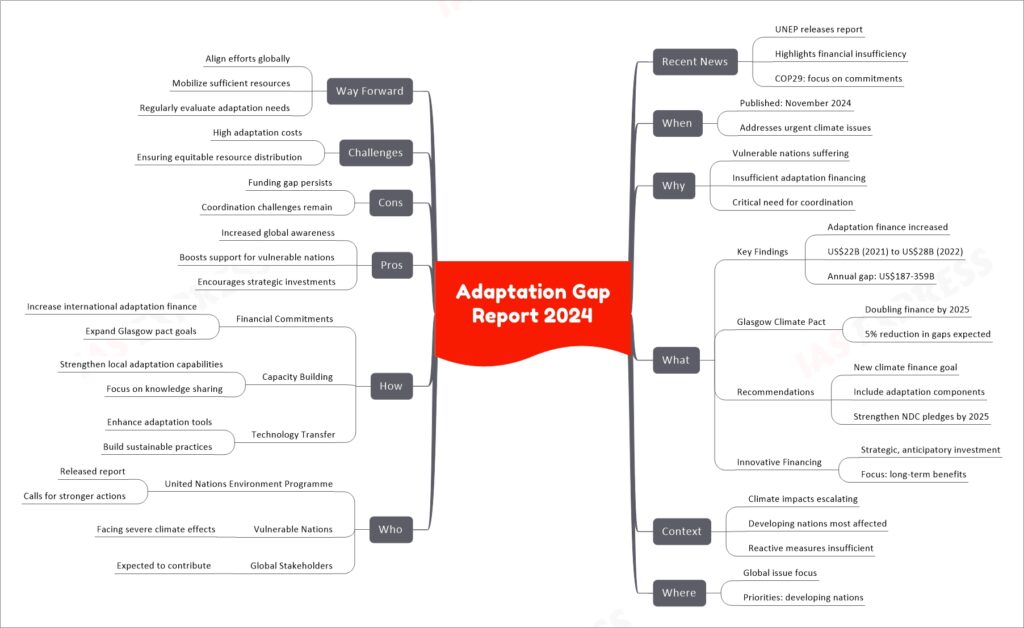
The Adaptation Gap Report 2024, released by UNEP, underscores the pressing need for enhanced climate adaptation efforts. While global adaptation finance rose from $22 billion in 2021 to $28 billion in 2022, a significant annual funding gap of $187-$359 billion persists. The report calls for new financial goals, stronger adaptation elements in climate pledges, and innovative financing strategies. Vulnerable nations, disproportionately affected by climate impacts, require capacity building and technology transfer. As COP29 approaches, the focus is on achieving coordinated global action to address these challenges, emphasizing sustainable and anticipatory adaptation measures.
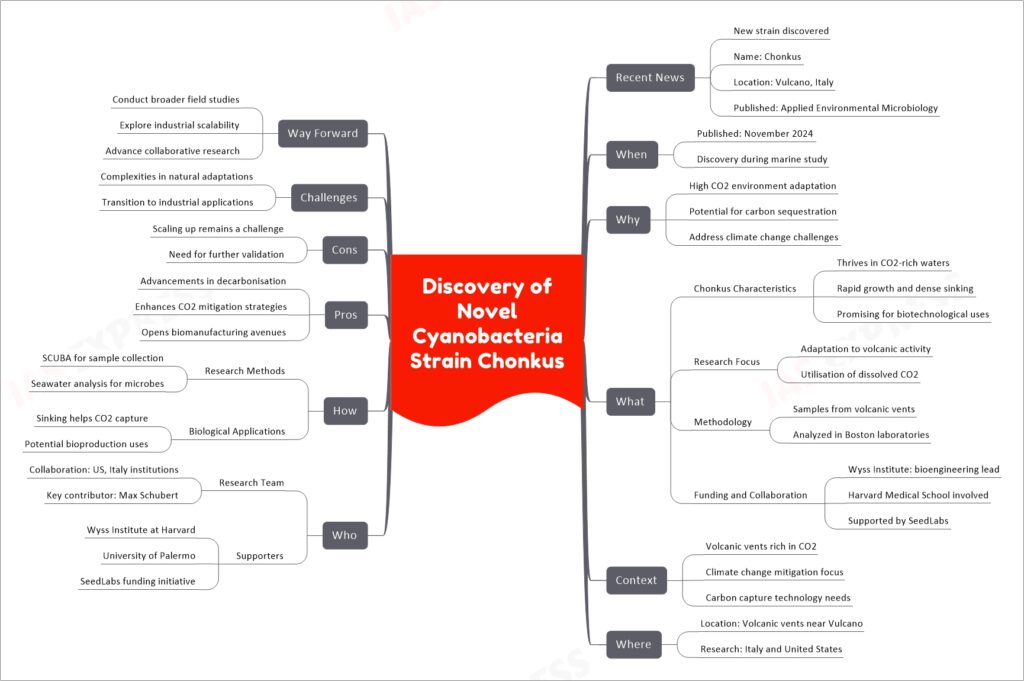
Researchers discovered a unique cyanobacteria strain, Chonkus, thriving in the CO2-rich volcanic vents near Vulcano, Italy. This strain’s rapid growth and natural tendency to sink make it a promising candidate for carbon sequestration and biotechnological innovations. Developed through a collaboration involving the Wyss Institute, Harvard Medical School, and the University of Palermo, this breakthrough could significantly enhance decarbonisation efforts. While challenges remain in scaling and validation, Chonkus opens new possibilities for combating climate change and advancing biomanufacturing, showcasing nature’s potential in providing sustainable environmental solutions.
If you like this post, please share your feedback in the comments section below so that we will upload more posts like this.
